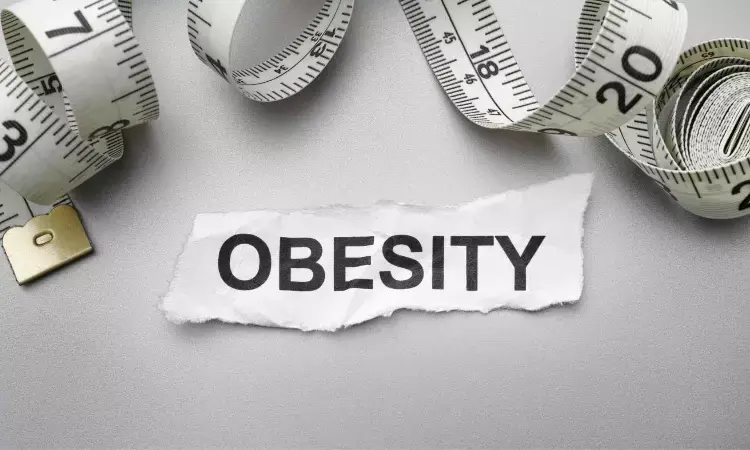- Home
- Medical news & Guidelines
- Anesthesiology
- Cardiology and CTVS
- Critical Care
- Dentistry
- Dermatology
- Diabetes and Endocrinology
- ENT
- Gastroenterology
- Medicine
- Nephrology
- Neurology
- Obstretics-Gynaecology
- Oncology
- Ophthalmology
- Orthopaedics
- Pediatrics-Neonatology
- Psychiatry
- Pulmonology
- Radiology
- Surgery
- Urology
- Laboratory Medicine
- Diet
- Nursing
- Paramedical
- Physiotherapy
- Health news
- Fact Check
- Bone Health Fact Check
- Brain Health Fact Check
- Cancer Related Fact Check
- Child Care Fact Check
- Dental and oral health fact check
- Diabetes and metabolic health fact check
- Diet and Nutrition Fact Check
- Eye and ENT Care Fact Check
- Fitness fact check
- Gut health fact check
- Heart health fact check
- Kidney health fact check
- Medical education fact check
- Men's health fact check
- Respiratory fact check
- Skin and hair care fact check
- Vaccine and Immunization fact check
- Women's health fact check
- AYUSH
- State News
- Andaman and Nicobar Islands
- Andhra Pradesh
- Arunachal Pradesh
- Assam
- Bihar
- Chandigarh
- Chattisgarh
- Dadra and Nagar Haveli
- Daman and Diu
- Delhi
- Goa
- Gujarat
- Haryana
- Himachal Pradesh
- Jammu & Kashmir
- Jharkhand
- Karnataka
- Kerala
- Ladakh
- Lakshadweep
- Madhya Pradesh
- Maharashtra
- Manipur
- Meghalaya
- Mizoram
- Nagaland
- Odisha
- Puducherry
- Punjab
- Rajasthan
- Sikkim
- Tamil Nadu
- Telangana
- Tripura
- Uttar Pradesh
- Uttrakhand
- West Bengal
- Medical Education
- Industry
New guidance for managing obesity in children and adolescents released

A new guideline to help health care providers manage obesity in children and adolescents takes a patient-centred approach, emphasizing behavioural and psychological supports that focus on outcomes valued by patients and their families.
The guideline based on the latest evidence, is published in CMAJ (Canadian Medical Association Journal).
It was developed by Obesity Canada through an extensive, 4-year-long collaboration involving adolescents and caregivers with lived obesity experience, methodologists, health care providers, and more than 50 multidisciplinary experts.
“The guideline is designed to support shared and informed clinical decision-making rooted in systematic, interpretable summaries of scientific evidence,” said Dr. Bradley Johnston, associate professor of nutrition and health research methods and co-chair of the guideline development committee. “To achieve that, we devised a transparent process to assess the totality of scientific evidence for relevant interventions to manage pediatric obesity, while prioritizing outcomes that matter the most to children, adolescents, and their families.”
These outcomes include quality of life, mental health, related cardiovascular risk factors, avoiding harms, and more.
Pediatric obesity is a complex, chronic, progressive, and stigmatized condition that increases risk for more than 200 health conditions. In Canada, about 1 in 4 children aged 11 years or younger and 1 in 3 adolescents aged 12–17 years have an elevated body mass index, suggesting overweight or obesity. International data indicate that severe obesity appears to be on the rise globally.
“The health consequences and persistence of pediatric obesity into adulthood highlight the need for available, accessible, family-oriented interventions for effective obesity management,” says Dr. Sanjeev Sockalingam, scientific director, Obesity Canada. “Success in managing pediatric obesity is most likely when children and their families can access support and practical strategies to make and sustain positive behavioural changes, complemented by pharmacologic and surgical interventions, if necessary and available.”
The guideline contains 10 recommendations, including guidance on nutritional, physical activity, psychological, and technology interventions, and medications and surgical options, as well as 9 good practice statements. The authors recommend combining at least 2 options to help manage obesity.
“We know the time to act on pediatric obesity is now. Waiting until children and adolescents become adults before providing meaningful, informed, evidence-based care and support only heightens the risk for developing complications and prolongs the experience of living with a stigmatized chronic disease, which can worsen further physical and mental health outcomes,” said Lisa Schaffer, executive director, Obesity Canada.
Reference:
Geoff D.C. Ball, Roah Merdad, Catherine S. Birken, Tamara R. Cohen, Brenndon Goodman, Stasia Hadjiyannakis, Jill Hamilton, Mélanie Henderson, John Lammey, Katherine M. Morrison, Sarah A. Moore, Aislin R. Mushquash, Ian Patton, Nicole Pearce, Managing obesity in children: a clinical practice guideline, Canadian Medical Association Journal, DOI: https://doi.org/10.1503/cmaj.241456.
Dr Kamal Kant Kohli-MBBS, DTCD- a chest specialist with more than 30 years of practice and a flair for writing clinical articles, Dr Kamal Kant Kohli joined Medical Dialogues as a Chief Editor of Medical News. Besides writing articles, as an editor, he proofreads and verifies all the medical content published on Medical Dialogues including those coming from journals, studies,medical conferences,guidelines etc. Email: drkohli@medicaldialogues.in. Contact no. 011-43720751


